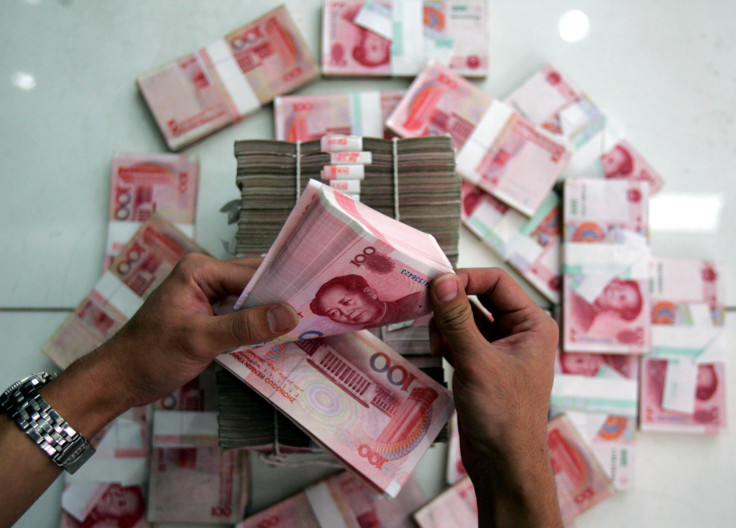China’s Forex Reserves Fall To $3.20T In February, Lowest In 4 Years

China’s foreign exchange reserves fell $28.75 billion in February for the fourth straight month to $3.20 trillion, the lowest since December 2011, Reuters reported, citing data released by the People’s Bank of China Monday. The fall, however, was slightly less than expected even as Beijing continued to sell dollars to support its currency and stem capital outflows.
Economists polled by Reuters had predicted reserves would fall $30 billion from $3.23 trillion at the end of January. The country's reserves had shrunk by $99.5 billion in January and a record $107.9 billion in December. In 2015, China's reserves reportedly fell $513 billion, representing the largest annual drop in its history.
The reduced rate of cash burn in February could indicate that the country's central bank is scaling back its interventions to support the yuan as capital outflows ease, according to industry watchers. China has been burning through its cash reserves at a record pace, leading investors to fear that Beijing might soon have to allow a sharp fall in the value of the yuan or dial back its economic stimulus measures.
“In February the government instituted a lot of administrative measures, which may have been able to slow down the outflows,” Kevin Lai, chief economist of Asia ex-Japan at Daiwa Capital Markets said in a note, cited by Reuters.
On Monday, the vice governor of the central bank, Yi Gang, said China's foreign exchange reserves are stable. He also added that the reserves will be moderate this year in line with expectations that the yuan will stabilize.
While Chinese officials insist that they see no reason for further currency depreciation, analysts believe the yuan will weaken 3.5 percent against dollar over the next 12 months, according to Reuters.
© Copyright IBTimes 2024. All rights reserved.





















